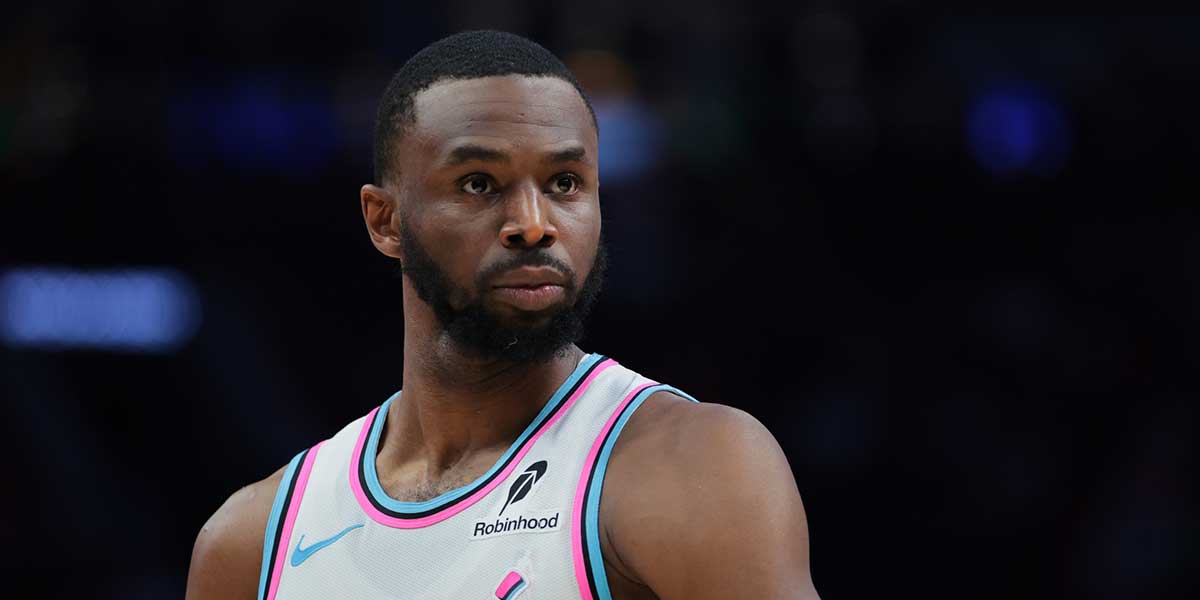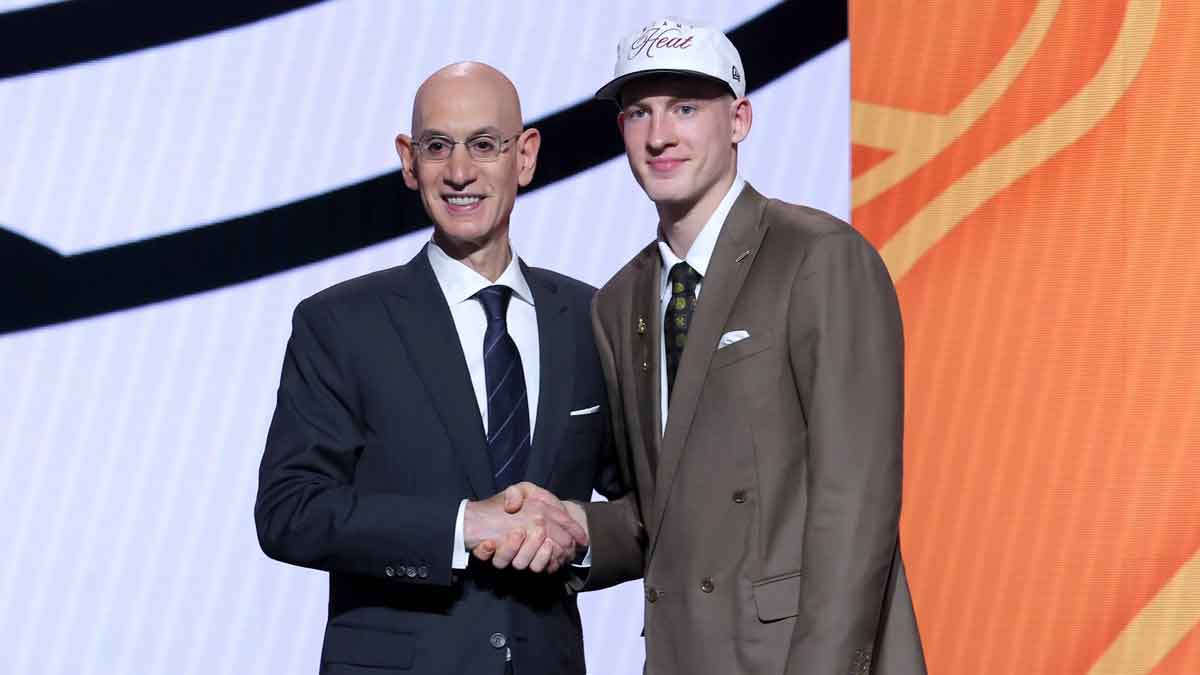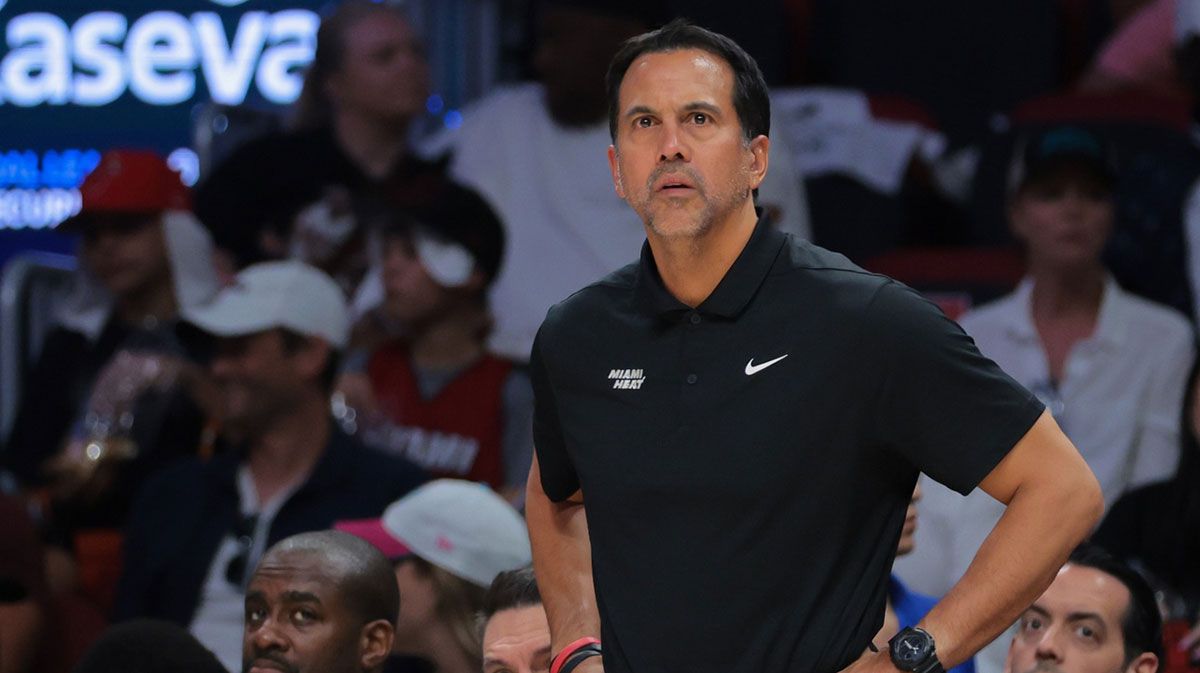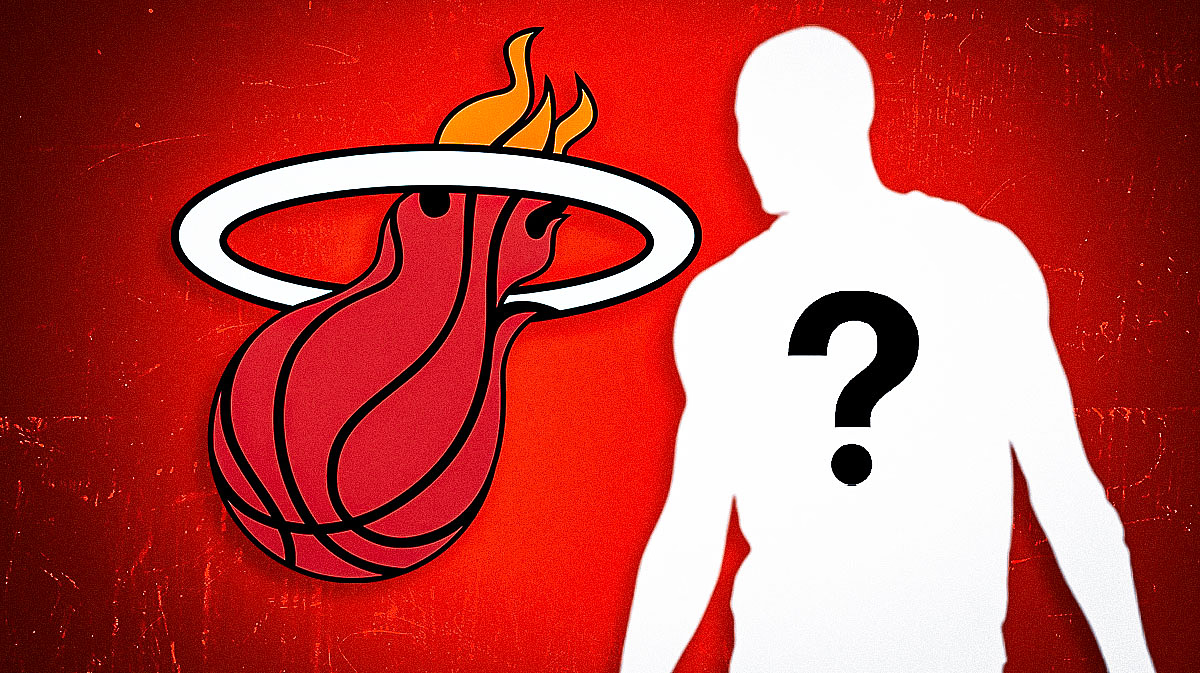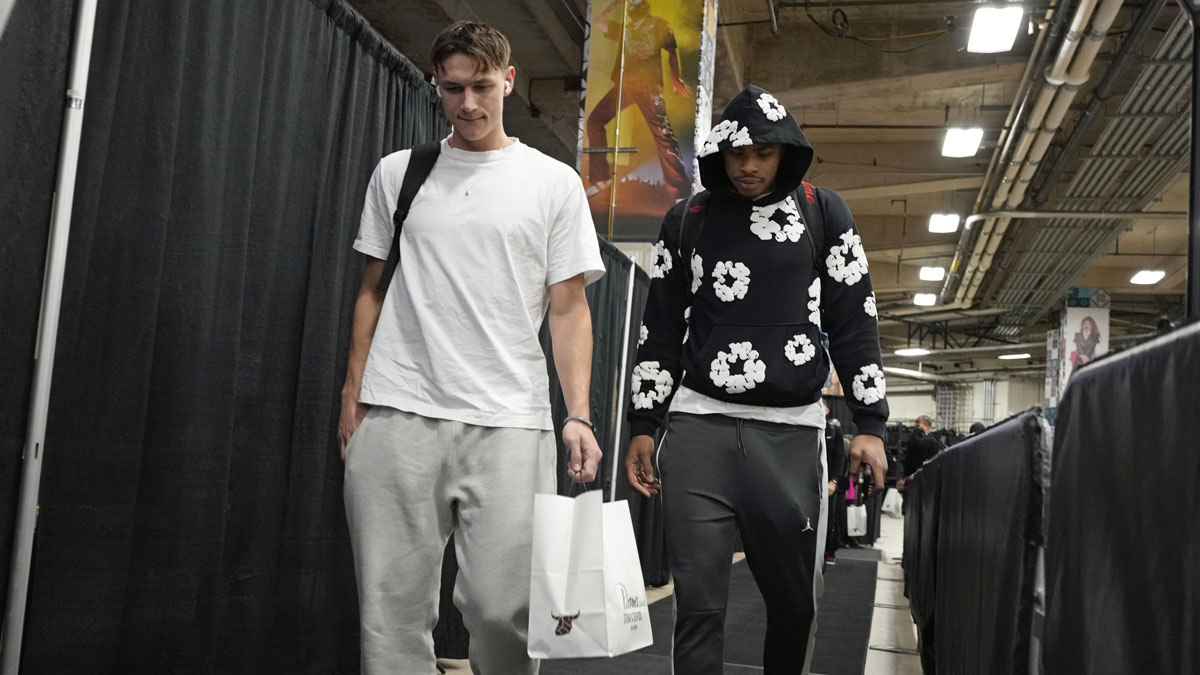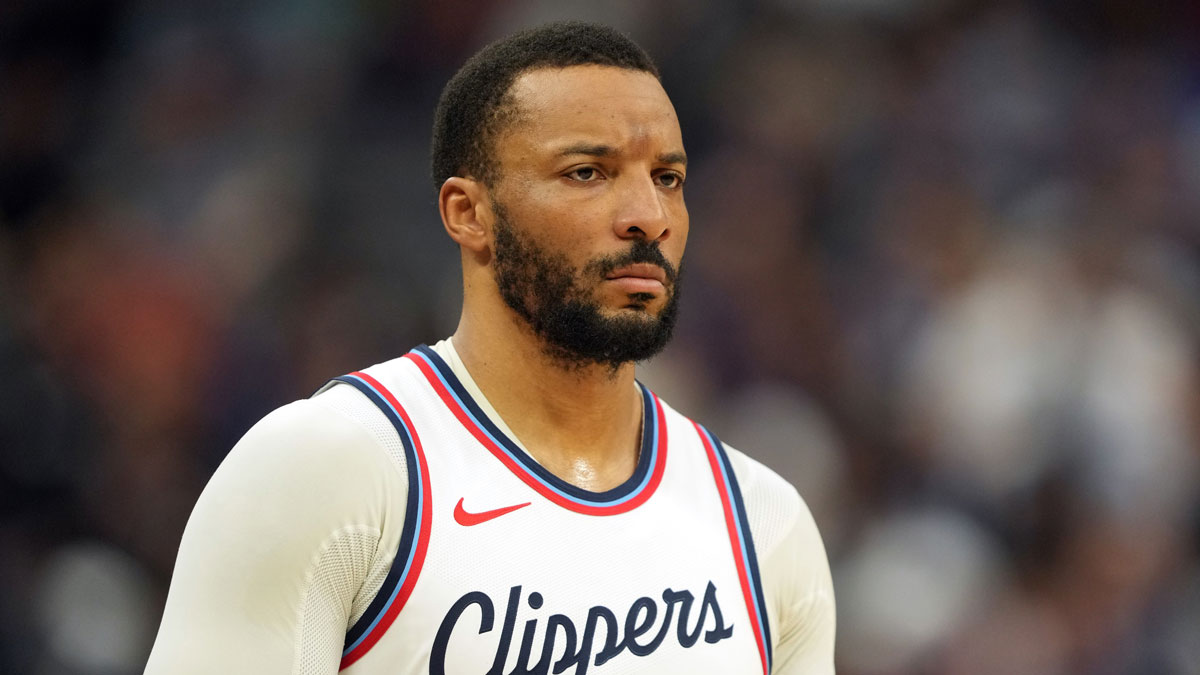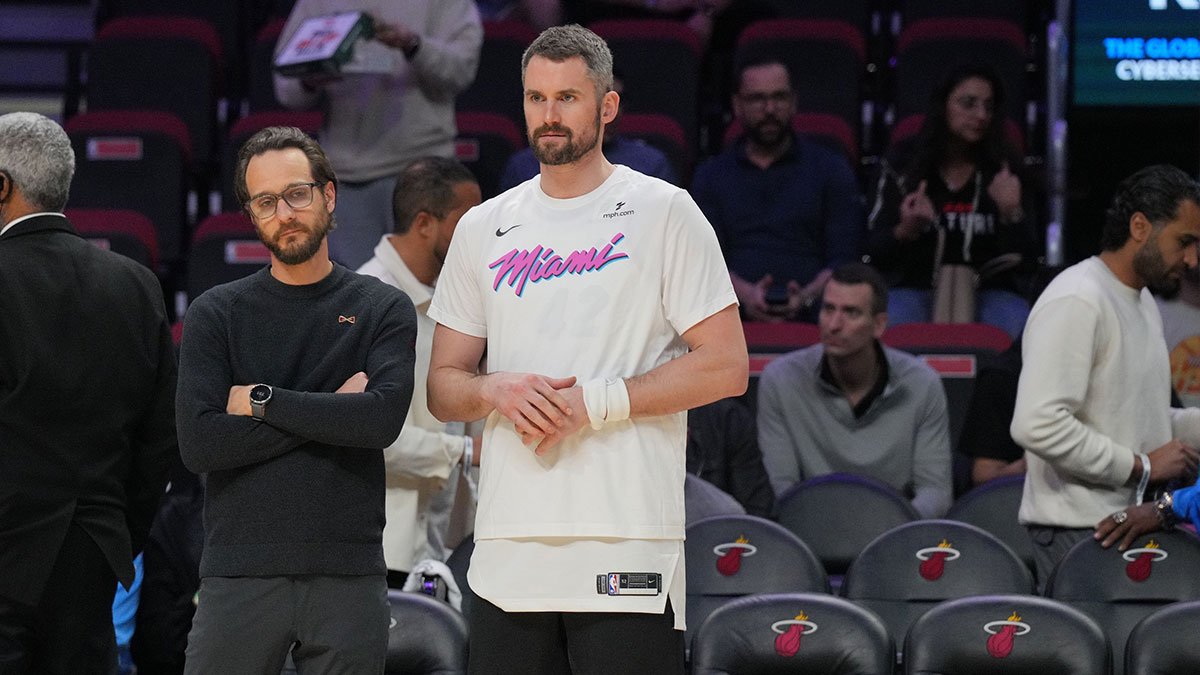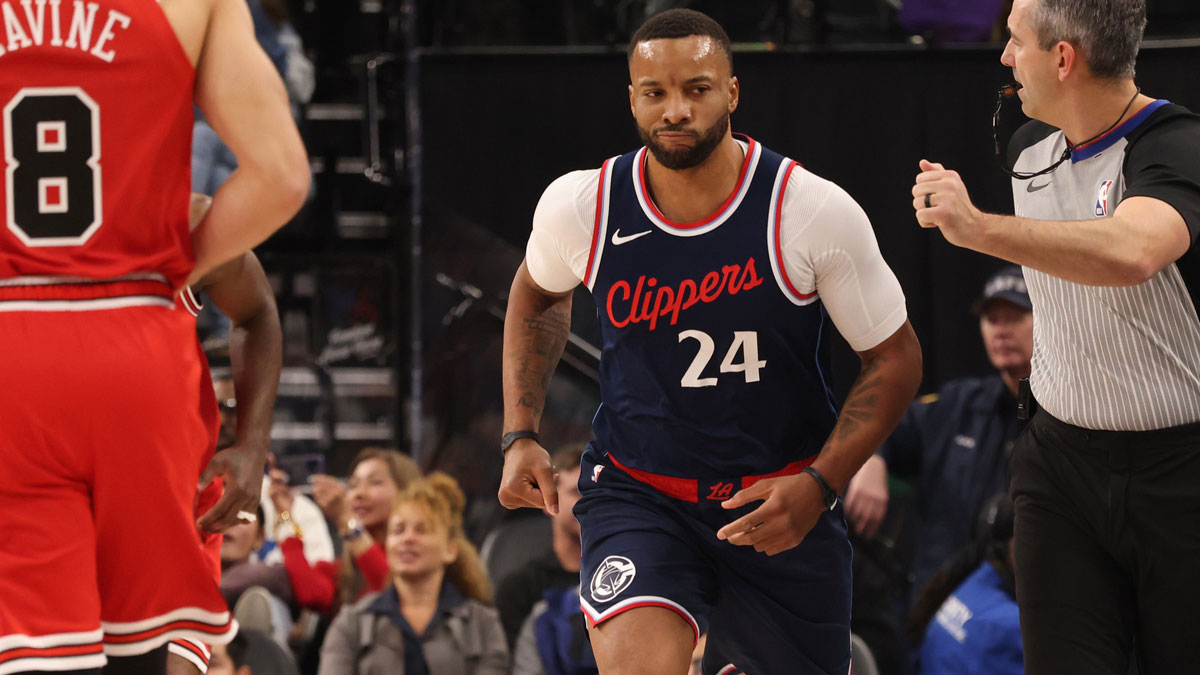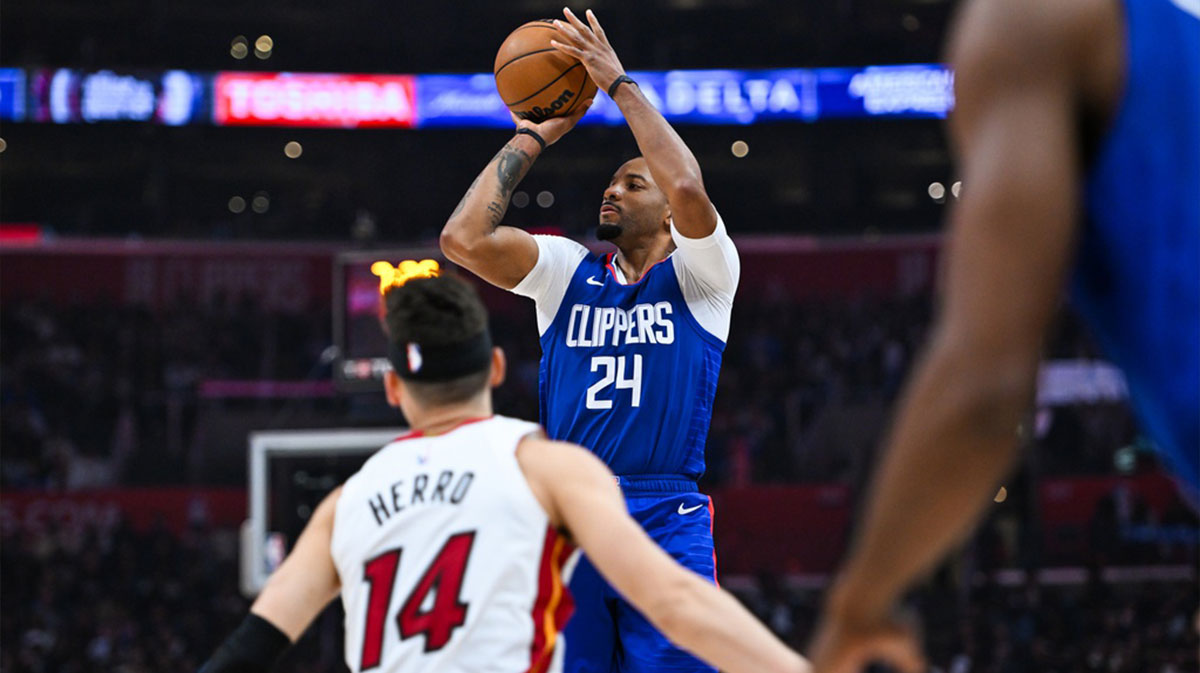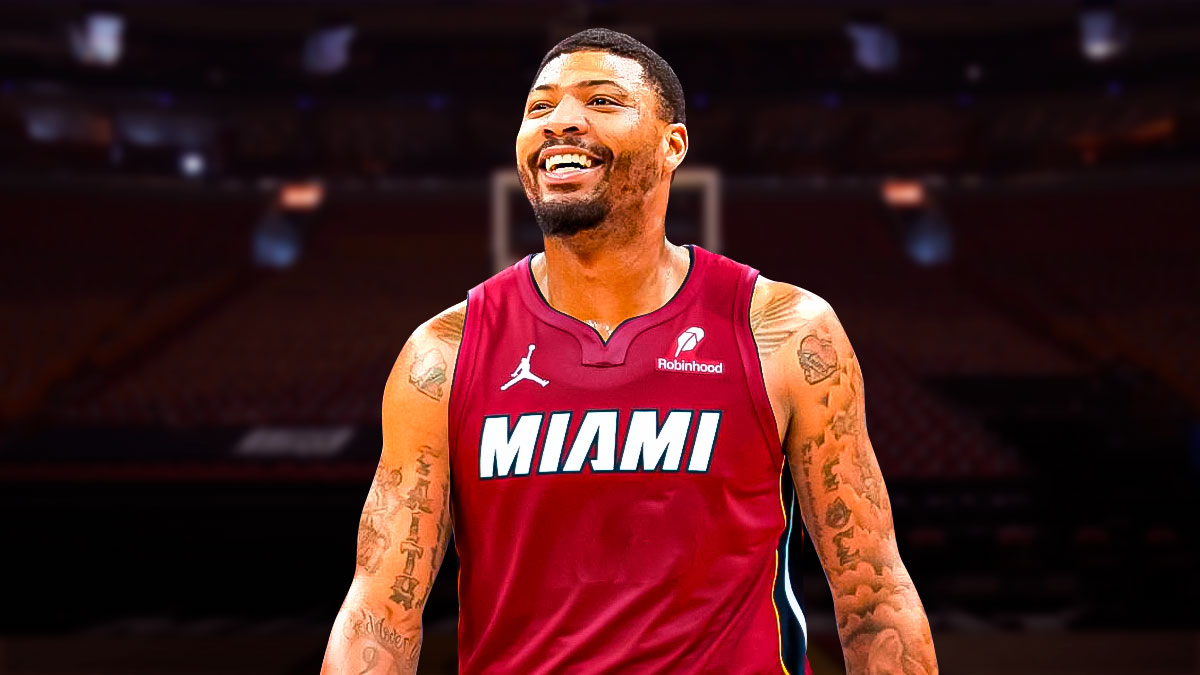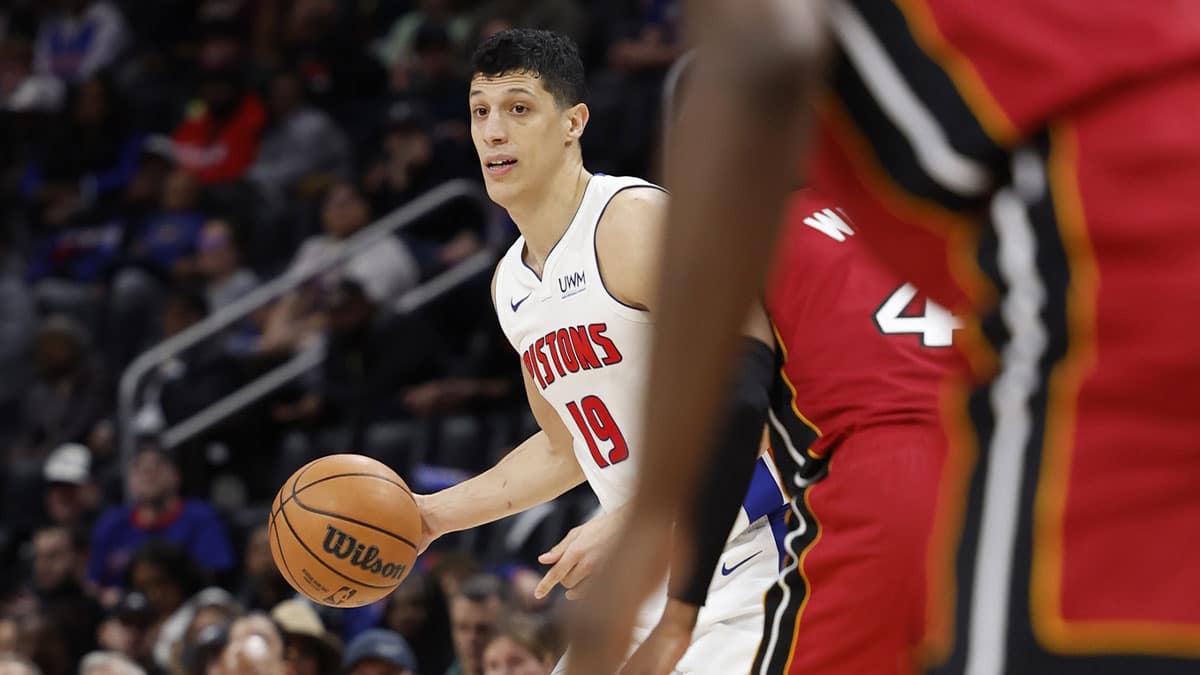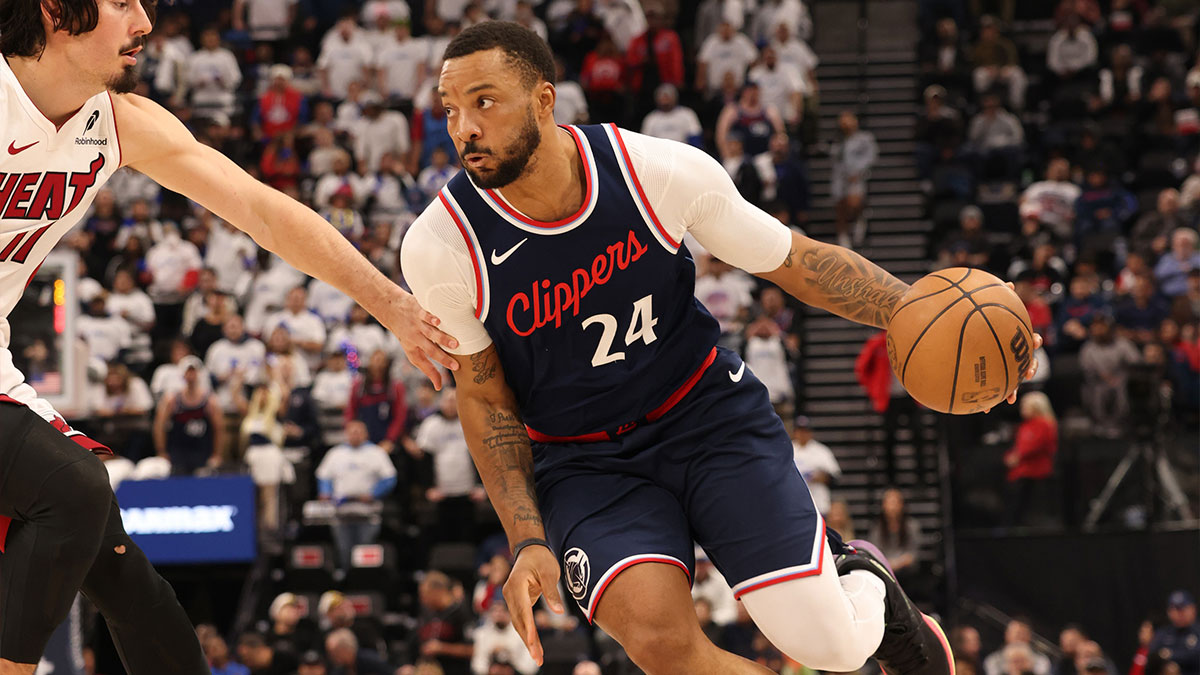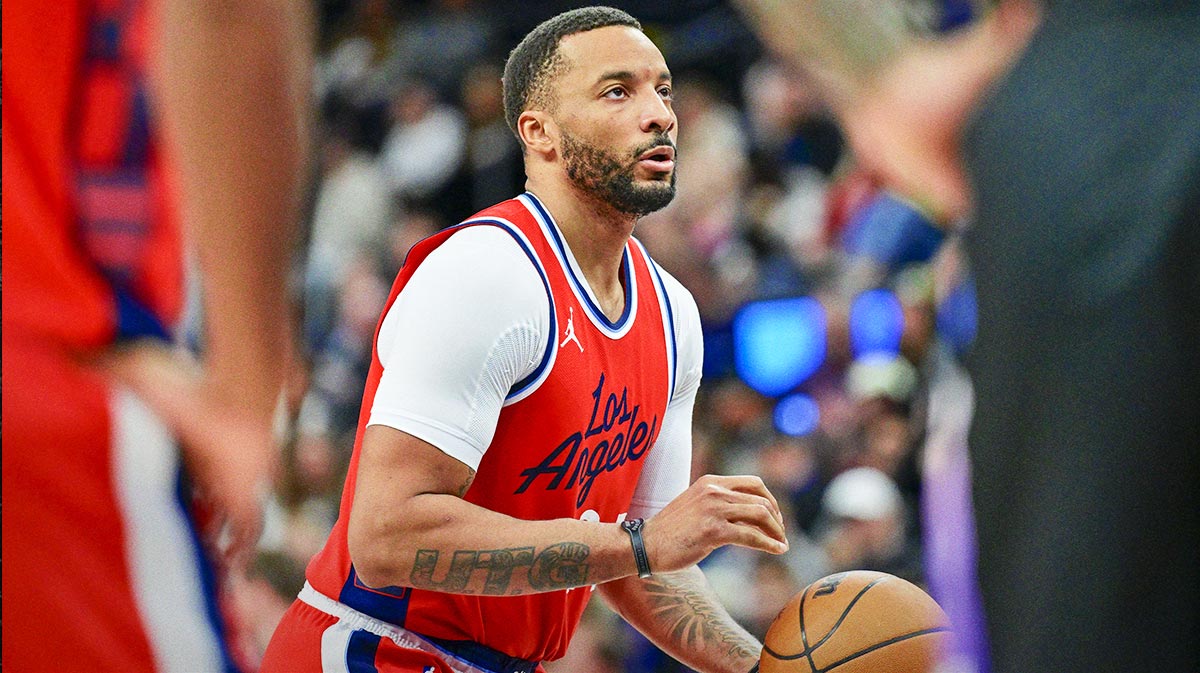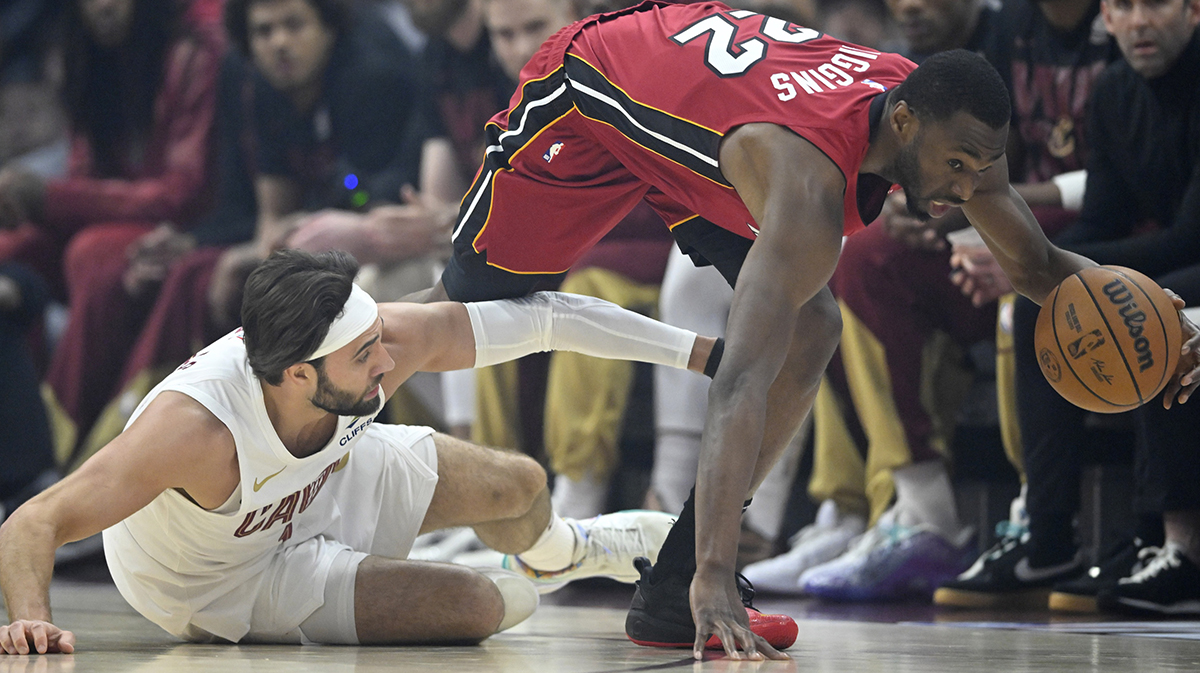He just wanted to be accepted.
Today, the media has labeled Jimmy Butler as a “selfish superstar” and “a locker room cancer.” Many NBA players and team executives view him as immature. But to truly understand his story and the man, himself, we'd have to start at the beginning and understand his desire to just be wanted.
Abandoned by his father when he was a baby, Jimmy was raised by his mother in Tomball, Texas. At age 13, she, too, turned on him. She told him bluntly, “I don't like the look of you. You gotta go.” Those were the last words Jimmy remembered hearing from his mother before she kicked him out of her apartment and onto the streets. No money, no family, and no home.
For several years, Jimmy bounced around from one friend's house to another. Though just a teenager, he would often have to worry about where he would spend the night–all the way up until he was a senior in high school.
As a senior at Tomball High School, Jimmy played on the school's basketball team. One day, after a game, a freshman named Jordan Leslie–who later became an NFL player–came up to him. Jordan, himself, was a dual-sport athlete, playing on both the school's basketball and football teams. Jordan walked over and casually challenged Jimmy to a three-point contest. They started shooting, Jordan later invited Jimmy over to his house to play video games, and a friendship was born.
Despite having seven kids already, Michelle Lambert, Jordan's mom, decided to take Jimmy in after hearing his story. Jimmy was floored. “They accepted me into their family,” he later said. “And it wasn't because of basketball…I couldn't believe it.”
Though Jimmy's life started to take a turn for the better, he was relatively unknown in the basketball scene. He left high school as a two-star guard, ranked 73rd in the state of Texas alone. Without major basketball programs clamoring at his door and with little funds, Jimmy chose to attend Tyler Junior College. He played basketball there, and his high-volume scoring quickly caught the attention of programs that had previously overlooked him.
Offers started to flood in. Powerhouses like Kentucky wanted him, but Jimmy ultimately decided to play for Marquette University. Consulting the mother figure in his life, Michelle Lambert, Jimmy realized that both education and sports were important in his decision, in case a career in basketball didn't work out.
After not getting big minutes at Marquette initially, Jimmy continued to work hard to improve his game. By his senior year, he averaged 15.7 points per game. And in the 2011 NBA Draft, was drafted 30th overall by the Chicago Bulls. A once-homeless teenager now had a shot on the biggest basketball stage in the world.
His rookie year was the shortened lockout season, and Jimmy played merely 42 games for the Bulls. The following year, he played in every one of the Bulls' 82 games, and earned a starting spot in all 12 of their playoff games. He averaged 13.3 points and 5.2 rebounds a game throughout their playoff run, and did so while often having to guard the opponent's best player on defense.
He was a young player on the rise. But instead of a breakout season the following year like most expected, injuries plagued him and caused him to miss 15 games. Though he scored 13.1 points per game, he did so on a terribly inefficient 39.7% from the field and 28.3% from three. There was no shortage of playing time, though, as he led the NBA in minutes played per game, at 38.7.
His breakout year did come, despite some criticisms that coach Tom Thibodeau didn't know how to handle his players' minutes. In the 2014-15 season, Jimmy once again led the NBA in minutes played per game. In one game, a triple-overtime win over the Orlando Magic, Thibodeau played Jimmy for 60 minutes. But unlike the previous season, Jimmy's numbers improved greatly. He became a 20-point scorer, while adding 5.8 rebounds and 1.8 steals a game. His shooting percentages skyrocketed from the previous year, now shooting 46% from the field and 37.8% from three.
His progress earned him the Most Improved Player award and his first All-Star berth. Over the next two years, Jimmy continued to grow as a player on both sides of the floor, as he earned two more All-Star berths and was named to the NBA All-Defensive Second Team for the second time in his career. But in the summer of 2017, after a lack of playoff success, Chicago decided to blow up its roster and rebuild.
In a blockbuster deal on draft day, Jimmy, along with a first round draft pick, was traded to the Minnesota Timberwolves. In return, Chicago received Zach Lavine, Kris Dunn, and the seventh overall pick in the 2017 NBA Draft, who would later turn out to be Lauri Markkanen.
The Chicago Bulls had fired head coach Tom Thibodeau in 2015, and he had became the coach of the Timberwolves in 2016. Now reunited with his former coach and paired with young talent like Karl-Anthony Towns and Andrew Wiggins, Jimmy had Minnesota fans buzzing. He played well in his first season with the Timberwolves, scoring 22.2 points a game while garnering some MVP chants from the crowd at times. But he never really got along well with his younger teammates.
At the beginning of the 2018-19 season, trouble started to brew. Jimmy didn't like the way his teammates were playing, and didn't appreciate the effort they were putting in, as reported by ESPN's Adrian Wojnarowski.
All-Star Jimmy Butler participated in Minnesota's practice, a session that included him verbally challenging teammates, coaches and front office, league sources told ESPN. Butler was vociferous and emotional at times, targeting Thibodeau/Layden/Towns/Wiggins. Story soon on ESPN.
— Adrian Wojnarowski (@wojespn) October 10, 2018
In one practice in October, Jimmy called his teammates “soft,” and proceeded to insult Towns during their scrimmage. This, of course, all came after Jimmy had requested a trade a few weeks earlier.
Later in that same scrimmage, Jimmy reportedly turned to Timberwolves GM Scott Layden, and yelled, “You (bleeping) need me. You can't win without me.” Jimmy's emotional tirade against both teammates and GM made instant headlines. The subtext behind his rant was that there had been disagreements on contract talks earlier that year. Going into the season, Jimmy wanted to renegotiate his contract to give himself $30 million that season and add on an additional four years for $145 million. Another disgruntled star just wanting more money and attention, it seemed.
But in an interview with ESPN's Rachel Nichols, Jimmy clarified. “It's not about money,” he told Nichols. “It's about, like, saying, ‘We need you. We want you here. We can't do this without you.'” His discontent stemmed from the Timberwolves team and organization not fully accepting him. He never truly felt wanted. And, if this past offseason with Kevin Durant has taught us anything, it's that fitting in and being wanted can trump even winning titles when deciding on where to play.
In November 2018, Jimmy was finally traded to the Philadelphia 76ers. Along with Justin Patton, Jimmy was sent to the Sixers in exchange for Robert Covington, Dario Saric, Jerryd Bayless, and a 2022 second round draft pick.
The 76ers, led by stars Joel Embiid and Ben Simmons, were already a team on the rise in the Eastern Conference. With Jimmy, they looked to contend for the top spot in the East. Butler continued to shine in Philadelphia, and even nailed a couple of game-winners early in his Sixers' tenure. New life and hope was injected into the Sixers' fan base. Was this All-Star guard finally the missing piece to complete “the process”?
The 76ers ended the season with the three-seed in the Eastern Conference, and Jimmy looked like he had finally found his home with the Sixers. He averaged 19.4 points, 6.1 rebounds, and 5.2 assists a game in the postseason. And his Sixers came to within a few bounces away from making the Eastern Conference Finals.
But a long stay on a contending Philadelphia team was not to be. Perhaps not liking being one of multiple stars on the team, Jimmy turned down a five-year, $190 million max contract from the Sixers. The offer of a max contract was a clear sign that the front office in Philadelphia wanted him and accepted him. But Jimmy had his sights set on the basketball scene in South Beach, where he would get to be the sole face of a franchise looking for relevance.
As a result, the Sixers traded him to the Miami Heat, where he would take a four-year, $141 million deal. Now, he finds himself in South Beach, where he is the undisputed number-one option on the team. This is his team to lead, and his job to restore Miami to its glory days.
Unlike most superstars in today's NBA, Jimmy wasn't heavily recruited out of high school. There wasn't much hype around him, and even upon entering the NBA Draft, he barely made it in the first round. He's had to work hard to be where he is now. He's been rejected by family, rejected by teammates, and rejected by organizations.
And now he's on a Miami Heat team that seemingly wants him to be their leader. In fact, Heat coach Erik Spoelstra has loved Jimmy's unselfish approach to the game so much that he's compared him to LeBron James in that aspect. It's not every day your coach compares you to one of the greatest players to ever play the game.
No longer abandoned, overlooked, or unwanted. He's wanted all eyes on him throughout his career. And now, he's a leader, a star, and potentially the future of the Miami Heat franchise. And here we are: at a crucial turning point in Jimmy's decorated career. He made a major decision to forego being on a championship contender to be on a team where he's the undisputed alpha dog. All eyes on him.
From homeless teen to Miami Heat superstar, at the end of the day, Jimmy just wanted to be accepted.
And now, he finally is.

